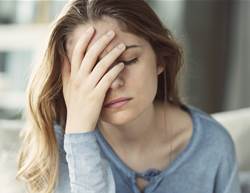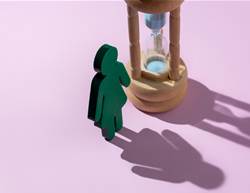This occurs during the decline of essential hormone oestrogen, triggering a sense of confusion in your hypothalamus, which is the gland that helps control your body temperature. But menopause is not the only reason why someone may get hot flushes, it can happen at any age.
Here are 5 natural ways you can manage hot flushes and reduce your personal triggers.
Tweak your diet
In some cases, an allergy or sensitivity to certain foods can be the reason hot flushes occur. Some of the common foods that trigger hot flushes can include spicy food and foods that contain refined sugar, added salt or caffeine. Keeping a food diary and cutting down on your trigger foods could be the key to finding out what your trigger is. And experts agree that certain foods that have Omega-3 fatty acids like olive oil can help reduce hot flushes so try including healthy fats like olive oil to your diet.
Exercise regularly
Keeping up a regular exercise routine is important for many health reasons, but it may also have a positive outcome in reducing hot flushes. When you exercise, moving your body helps to regulate its temperature. This may reduce the frequency of your hot flushes. One study found that strength training twice a week over three months helped to reduce almost half the number of hot flushes that the active women were getting.
Cool down at night
Hot flushes are uncomfortable, especially at night when your body temperature naturally fluctuates. Interrupted sleep from waking up, feeling hot and sweaty, doesn’t make for a good night’s sleep. To help your body at a lower temperature, try sleeping with fewer blankets or give cooling sheets and lightweight comforters a go. Cooling down your bedroom is another important factor. Decreasing the room temperature to 20 degrees Celsius or lower can aid in a better night’s sleep.
Cut down on alcohol
Along with food, alcohol is a big factor in triggering hot flushes. Red wine is seen as one of the biggest culprits. Consuming alcohol causes the blood vessels in the face to relax, leading to a skin-warming sensation. But if you drink alcohol every day or have a big night where you might have a few more drinks than usual, the real devastating effect can take hold after you go to sleep. Since there is a drop in your blood sugar after your liver has processed the alcohol in your system, this may cause you to wake up in the middle of the night with night sweats, which is not ideal for good night’s sleep.
Try therapy
Therapy can have a lot of benefits for those are prone to negative thinking. Cognitive behavioural therapy (CBT) is an approach that could help tame your stress response to hot flushes by building up the tools you can use to achieve a more positive mindset to remember as the physical symptoms take hold. Keeping your mind clear and recalling the things you do to cope can make all the difference.
.png&h=630&w=1120&c=1&s=1)








